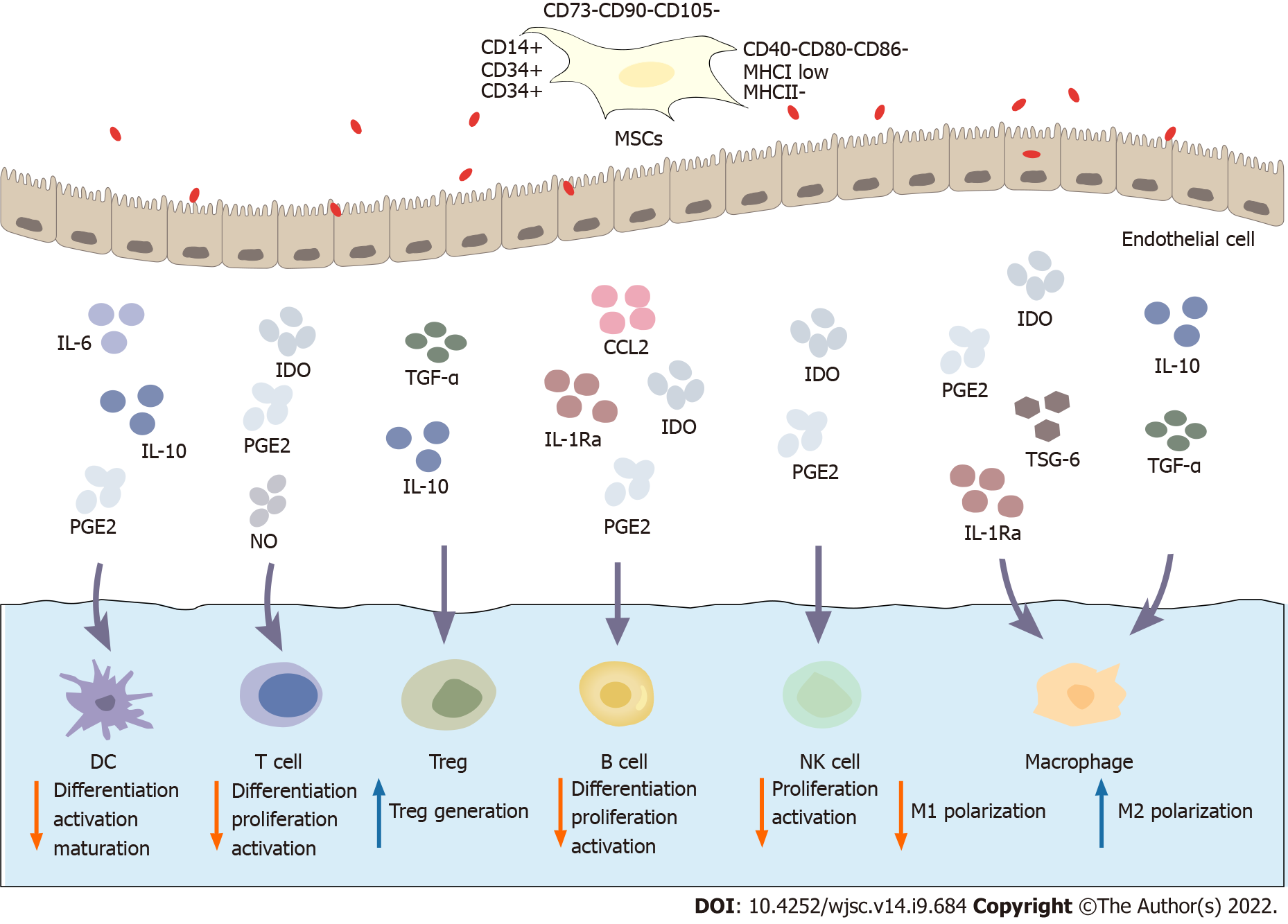Copyright
©The Author(s) 2022.
World J Stem Cells. Sep 26, 2022; 14(9): 684-699
Published online Sep 26, 2022. doi: 10.4252/wjsc.v14.i9.684
Published online Sep 26, 2022. doi: 10.4252/wjsc.v14.i9.684
Figure 1 Immunoregulatory mechanism of mesenchymal stem cells.
Mesenchymal stem cells (MSCs) express CD73, CD90 and CD105 and do not express haematopoietic markers such as CD14, CD34 and CD45 or the costimulatory molecules CD40, CD80 and CD86. MSCs exhibit low expression of major histocompatibility complex class (MHC) I and do not express MHC II. MSCs possess a wide range of immunomodulatory properties. Activated MSCs secrete a variety of soluble factors, such as indoleamine 2,3-dioxygenase, prostaglandin E2, transforming growth factor-β, tumor necrosis factor-α stimulating gene 6, interleukin (IL)-1Ra, and IL-6. These factors inhibit the differentiation, proliferation and activation of various immune cell subsets, including T cells, B cells, dendritic cells, macrophages, and natural killer cells. Therefore, MSCs inhibit the immune response to inhibit inflammation. MSCs: Mesenchymal stem cells; MHC: Major histocompatibility complex; IDO: Indoleamine 2,3-dioxygenase; PGE2: Prostaglandin E2; TGF-β: Transforming growth factor-β; TSG-6: Tumor necrosis factor-α stimulating gene 6; IL: Interleukin; NK: Natural killer; CCL: CC chemokine ligand.
- Citation: Shi MY, Liu L, Yang FY. Strategies to improve the effect of mesenchymal stem cell therapy on inflammatory bowel disease. World J Stem Cells 2022; 14(9): 684-699
- URL: https://www.wjgnet.com/1948-0210/full/v14/i9/684.htm
- DOI: https://dx.doi.org/10.4252/wjsc.v14.i9.684









